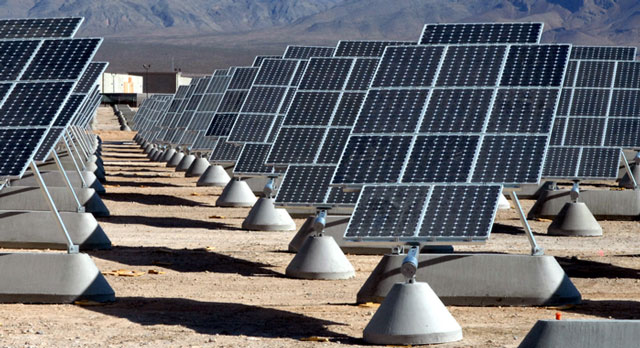
The Sun Exchange, a Western Cape-based company “streaming money from sunshine”, appears to have clocked a trio of firsts upon the completion of its pilot project: crowdfunding a solar photovoltaic (PV) plant at the Stellenbosch Waldorf School.
According to Abraham Cambridge, founder and CEO of The Sun Exchange, it is the first company in the world to have developed a blockchain-based direct ownership for solar assets, which provides investors with real-time lease income.
It claims to be the first company globally to make use of bitcoin when funding a solar project and the first to crowdfund a solar project in South Africa.
Only one third of the R400 000 project, comprising more than 3 000 solar cells, was funded by the school community with the additional capital coming from international funders.
As per The Sun Exchange business model, project funders are able to earn passive rental income of around 10%/year, by leasing solar cells to electricity consumers over a 20-year period.
“Funders started seeing returns the moment the system was turned on, because the lack of transaction fees means we can send payments out per kilowatt hour [of electricity consumed],” Cambridge said.
Given that electricity is expensive, with costs rising faster than inflation, investing in electricity offers a better rate of return than bank interest rates, he said. He added that The Sun Exchange is not an investment broker; it merely sells and facilitates the running of solar assets, after conducting a detailed due diligence on projects.
He went on to explain that real-time payments are a function of using blockchain technology, in that an immutable, transparent ledger registers, records and implements action-based responses on an ongoing basis. “It doesn’t care what the amount is, it just gets the data, processes it and makes the payment,” he said.
The free-to-use technology — together with digital currency bitcoin — eliminated transaction fees from The Sun Exchange’s offerings and lowered the barriers to investment by allowing funders to contribute as little as R100 to a project.
“Because of monetary controls, using a fiat currency would come with costs of 3% to 5% in fees and take around five days to process — that’s not commercially viable for a micro-industry. Bitcoin has drastically reduced the costs.
“And crowdfunding is enabling the democratisation of infrastructure development. We’re not relying on policy; it comes down to the inclination of people… It offers the added benefit of knowing exactly where money is going. We live in a world where people want to know that their money is not going towards things that they are morally opposed to,” Cambridge said.
Funders buying solar cells through The Sun Exchange also receive an allocation of SolarCoin, a tradeable digital token that can be converted to hard currency at a rate of around US$0,10/unit.
The company derives its own income from a success fee, or fixed percentage of each project, which is added upfront onto the amount necessary to fund a project.
The Sun Exchange was named the best blockchain and bitcoin company in Africa 2016 at a recent Finance Africa Conference in Johannesburg.
- See also: New model lets you make money from solar
- This article was originally published on Moneyweb and is used here with permission

